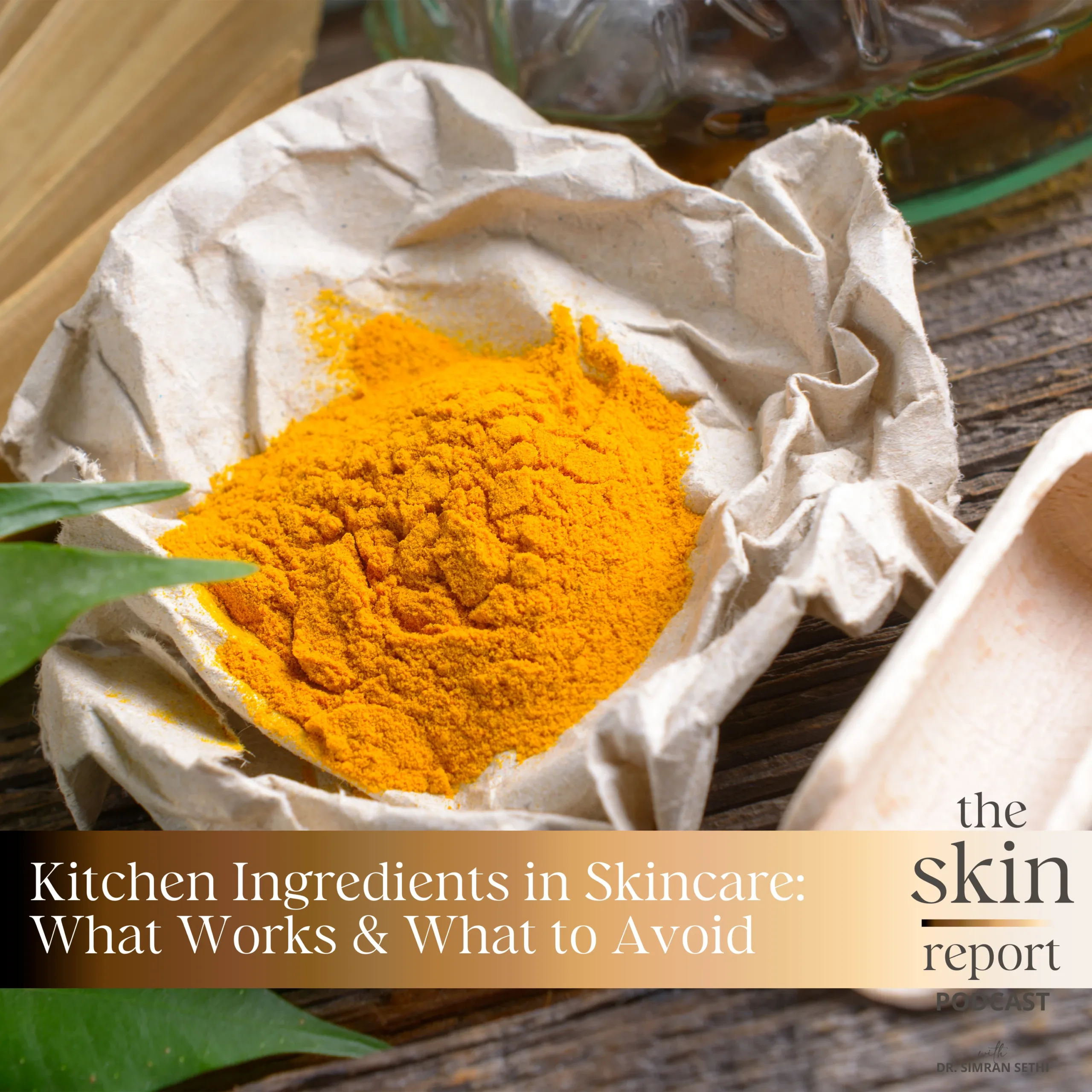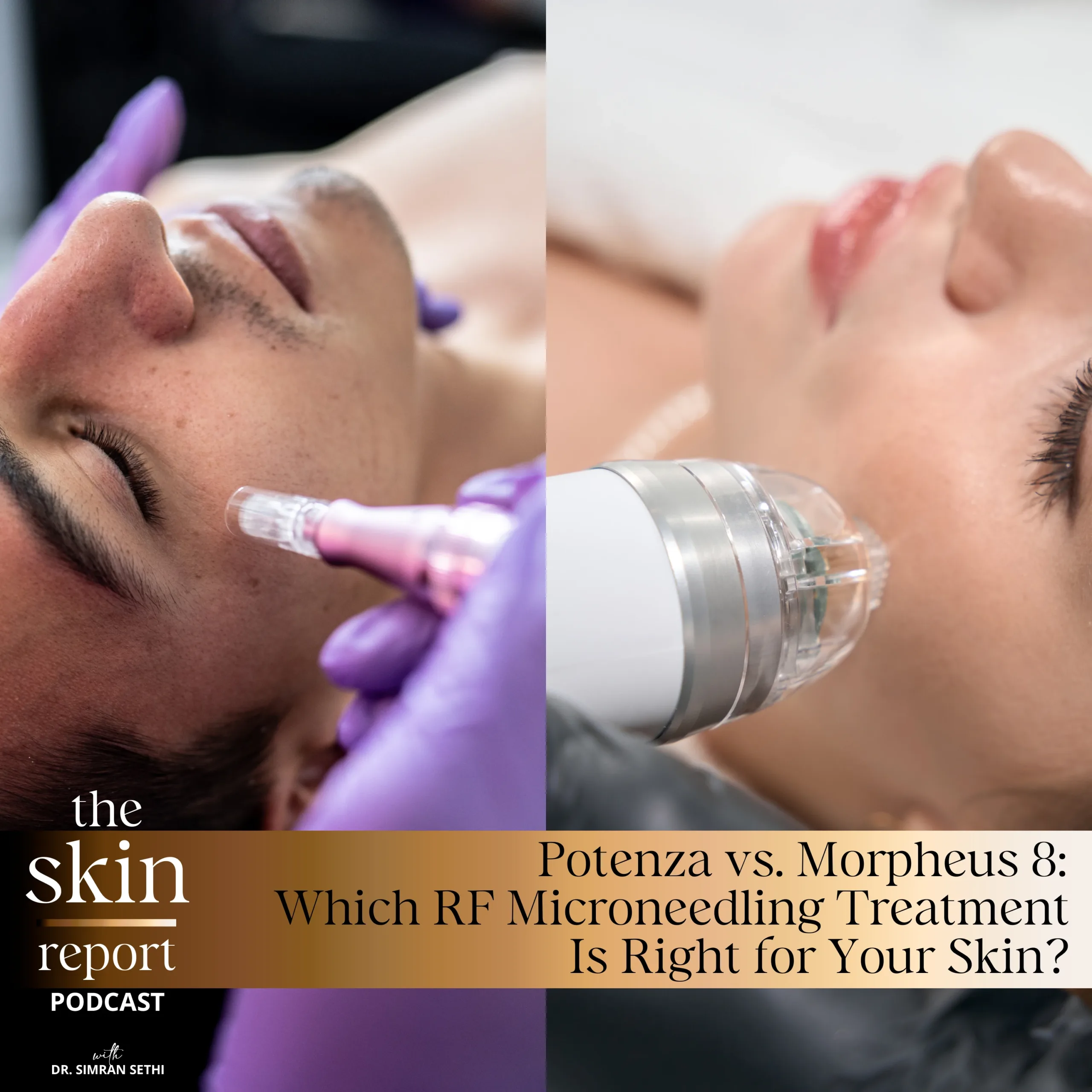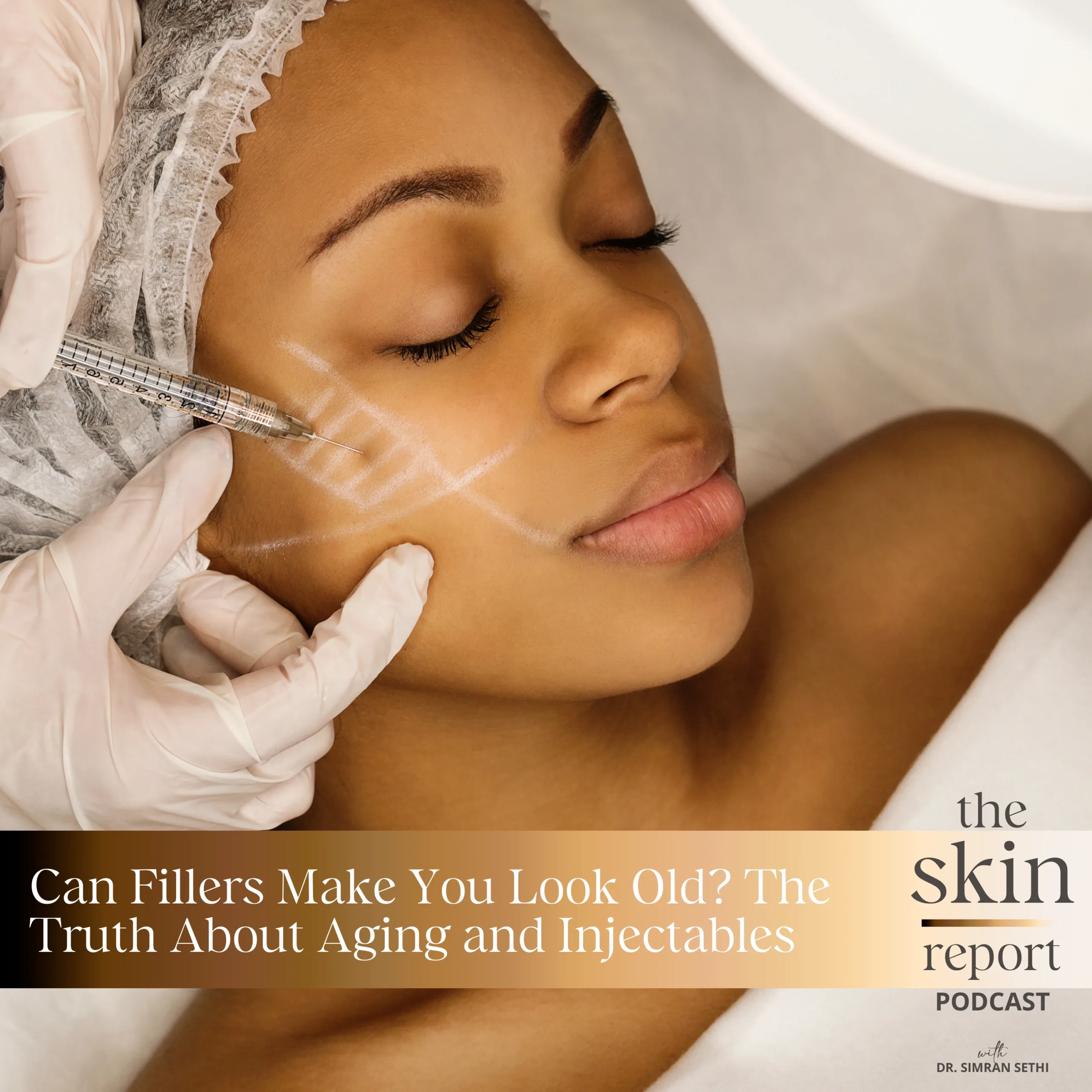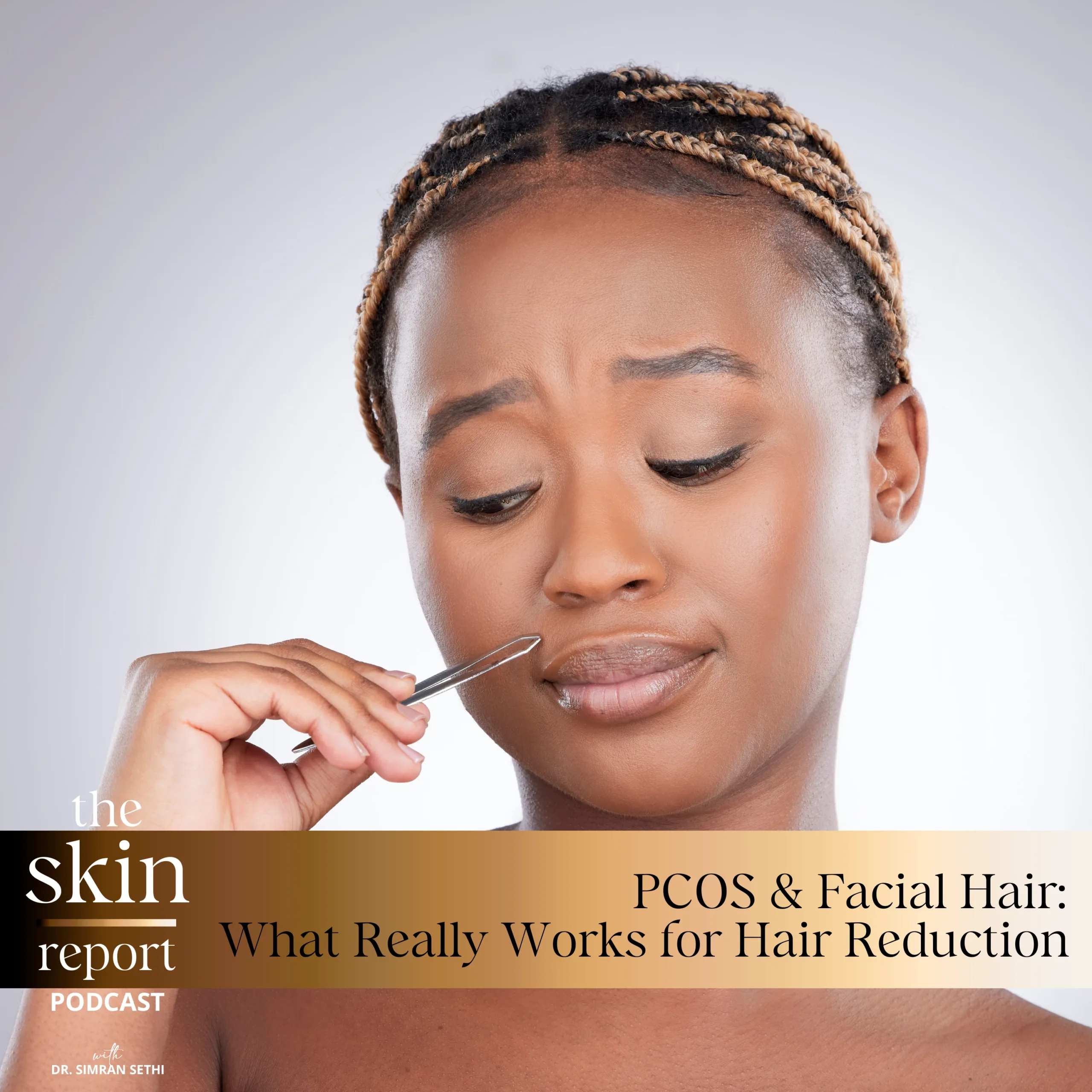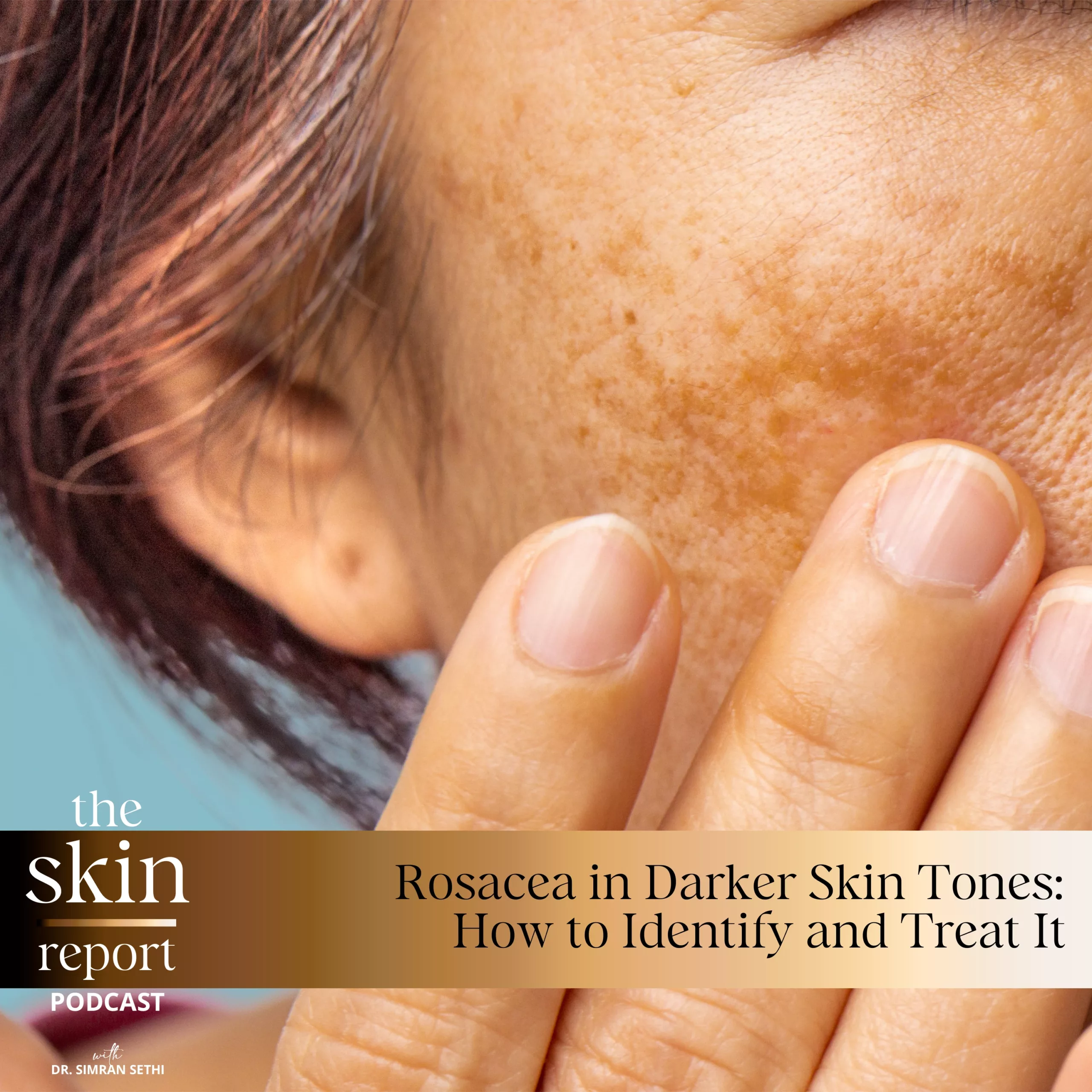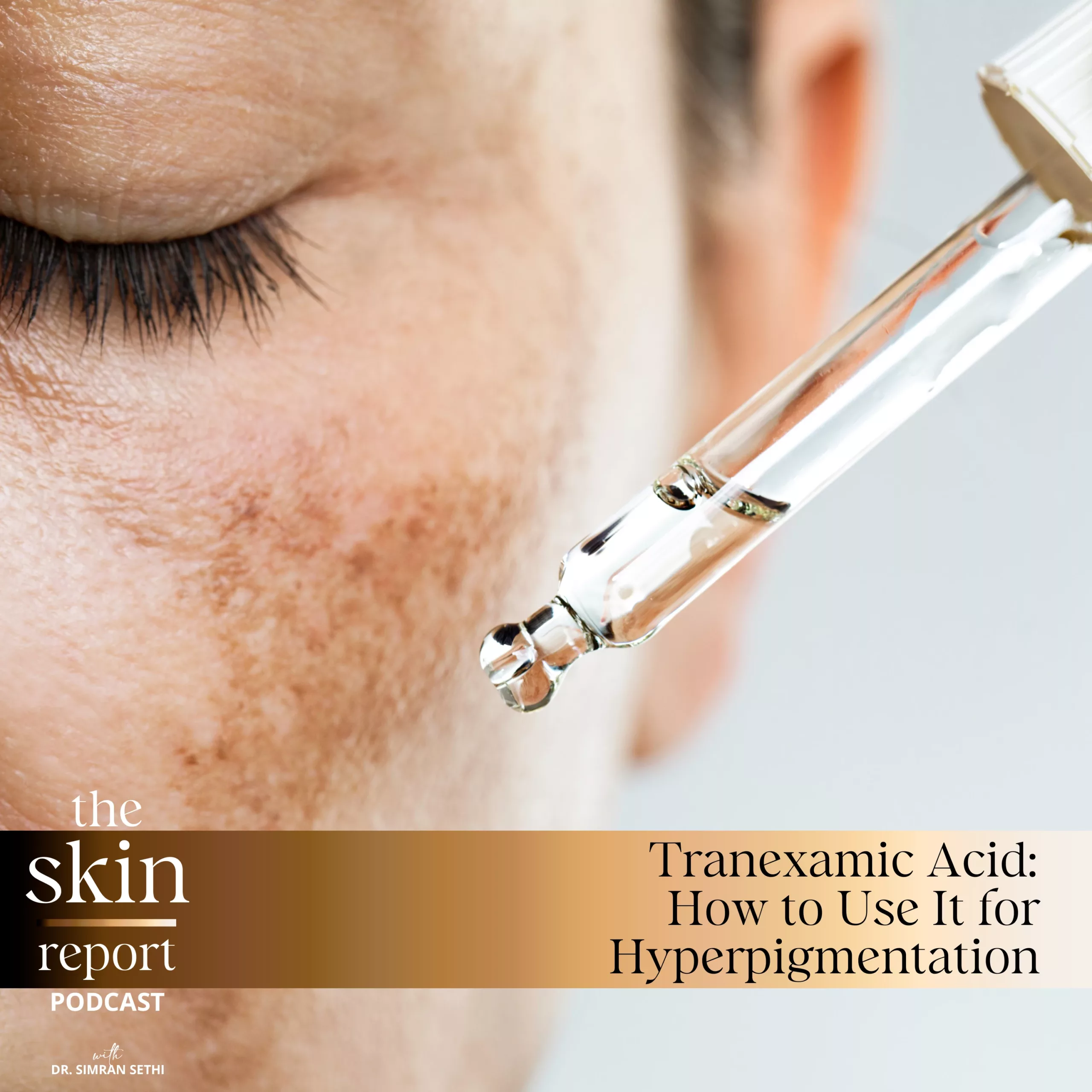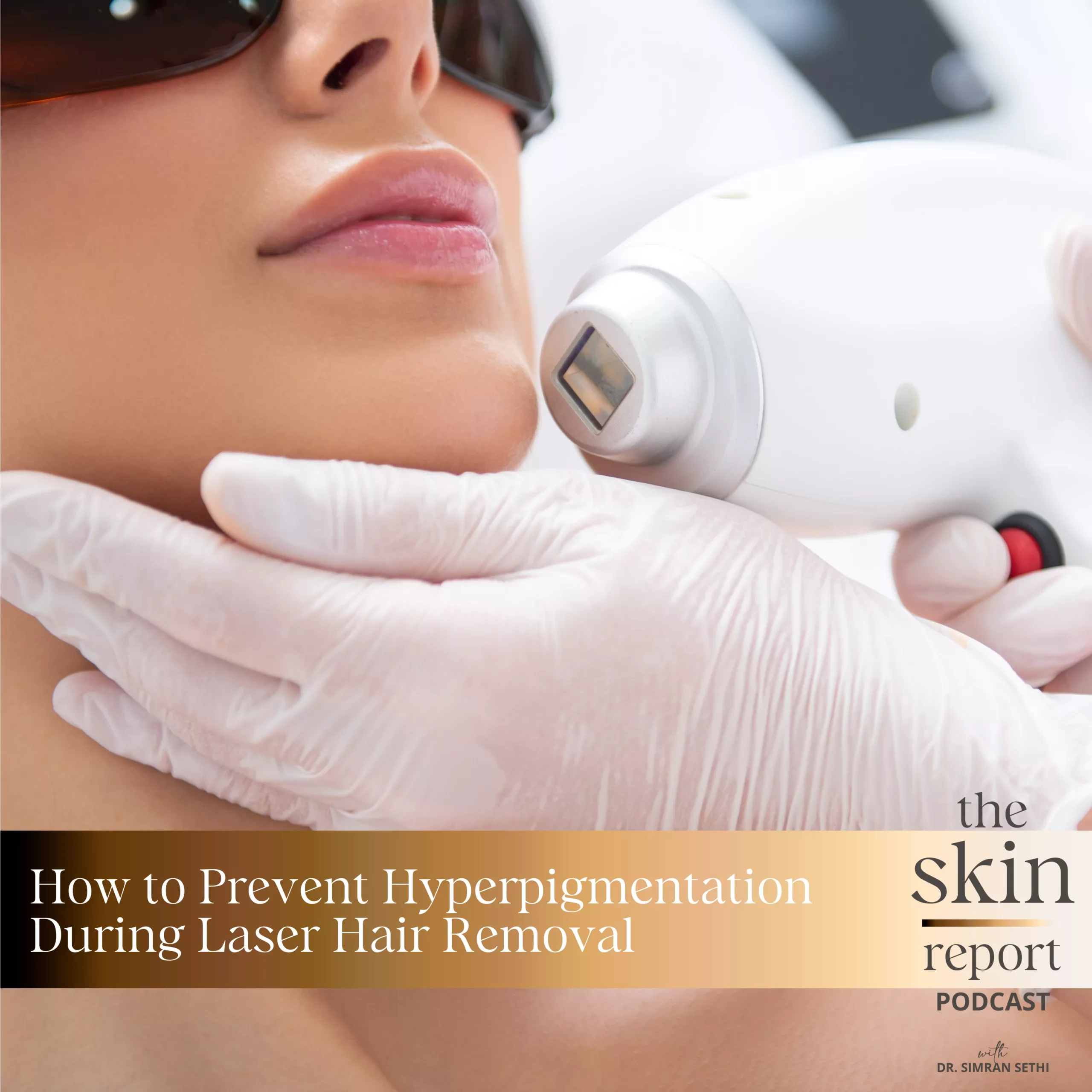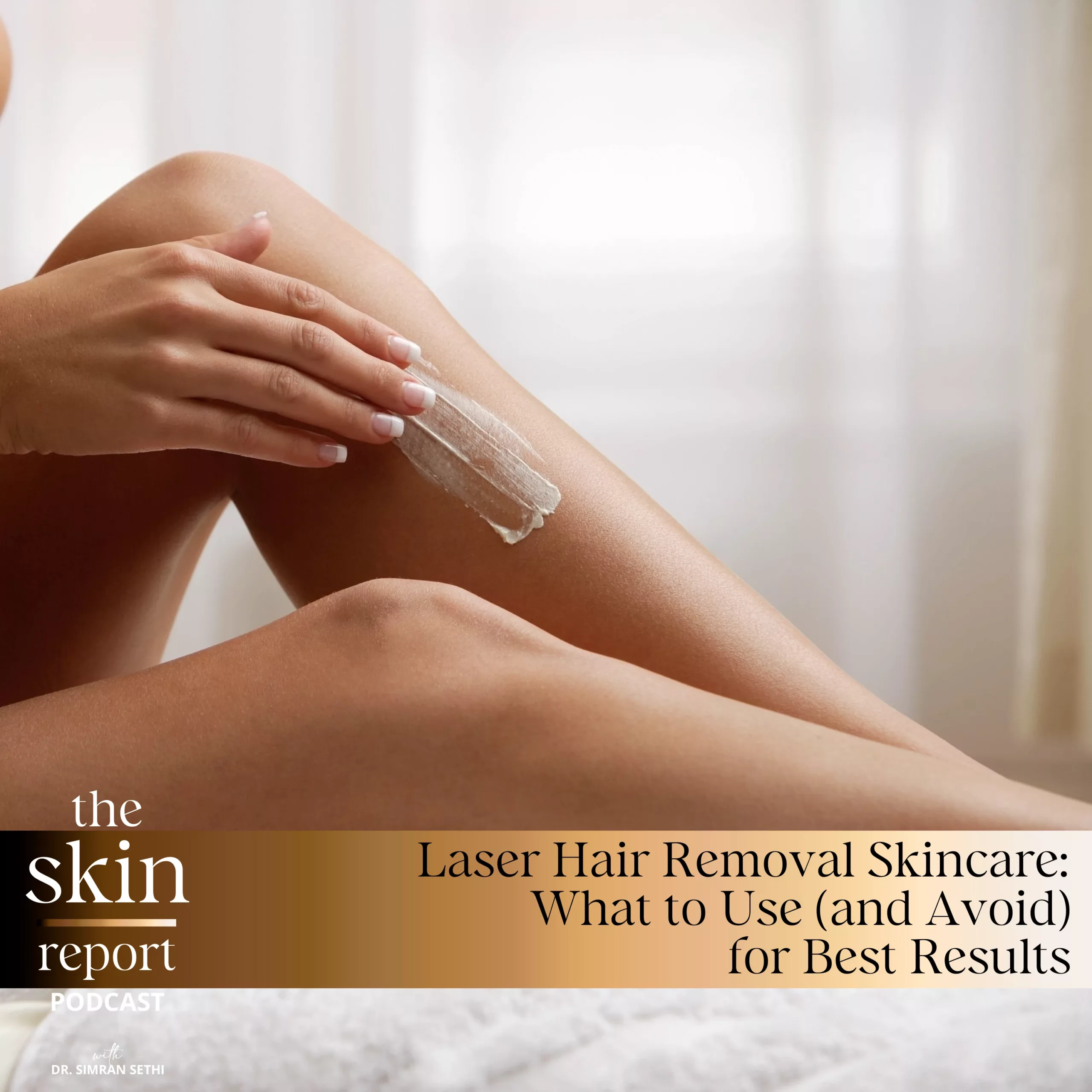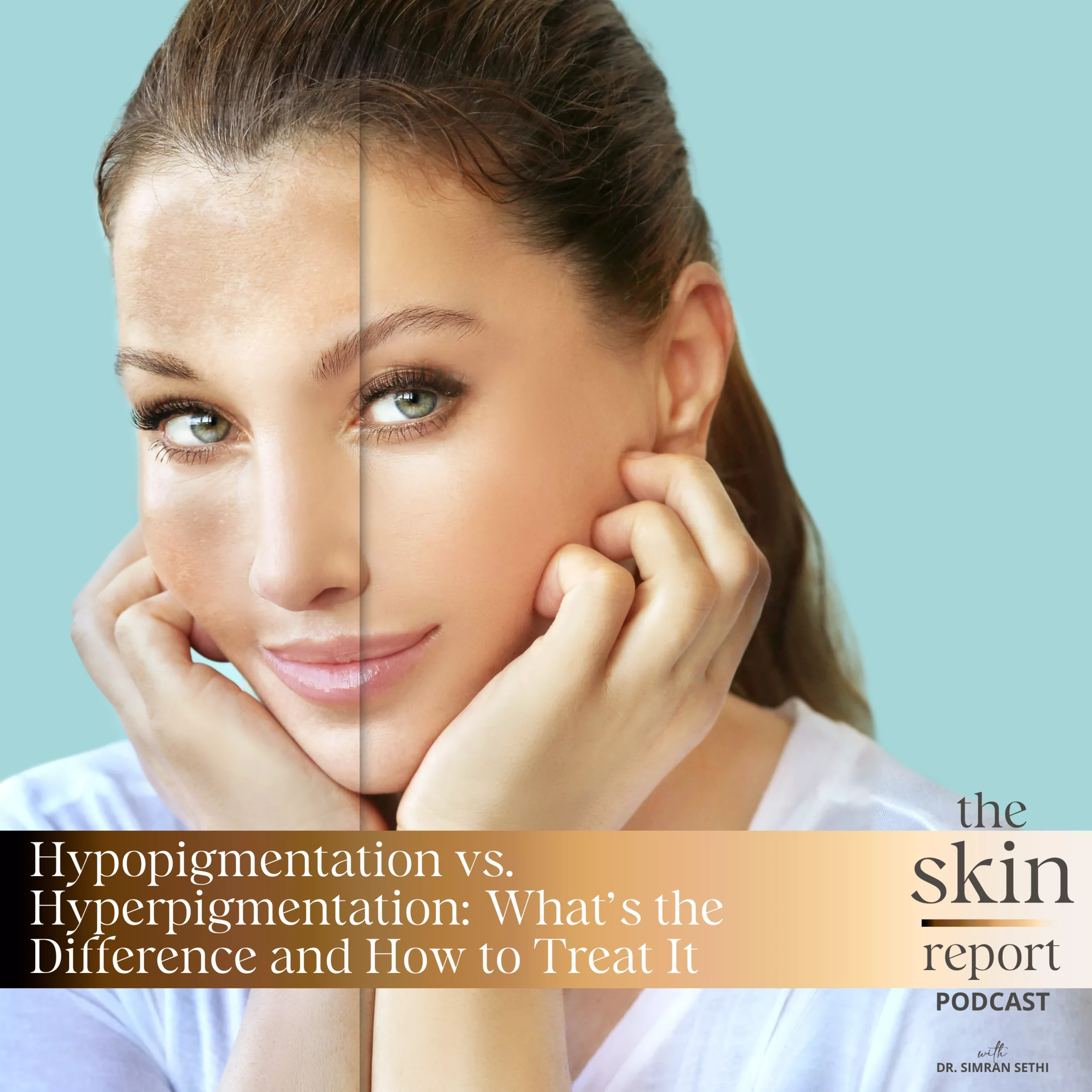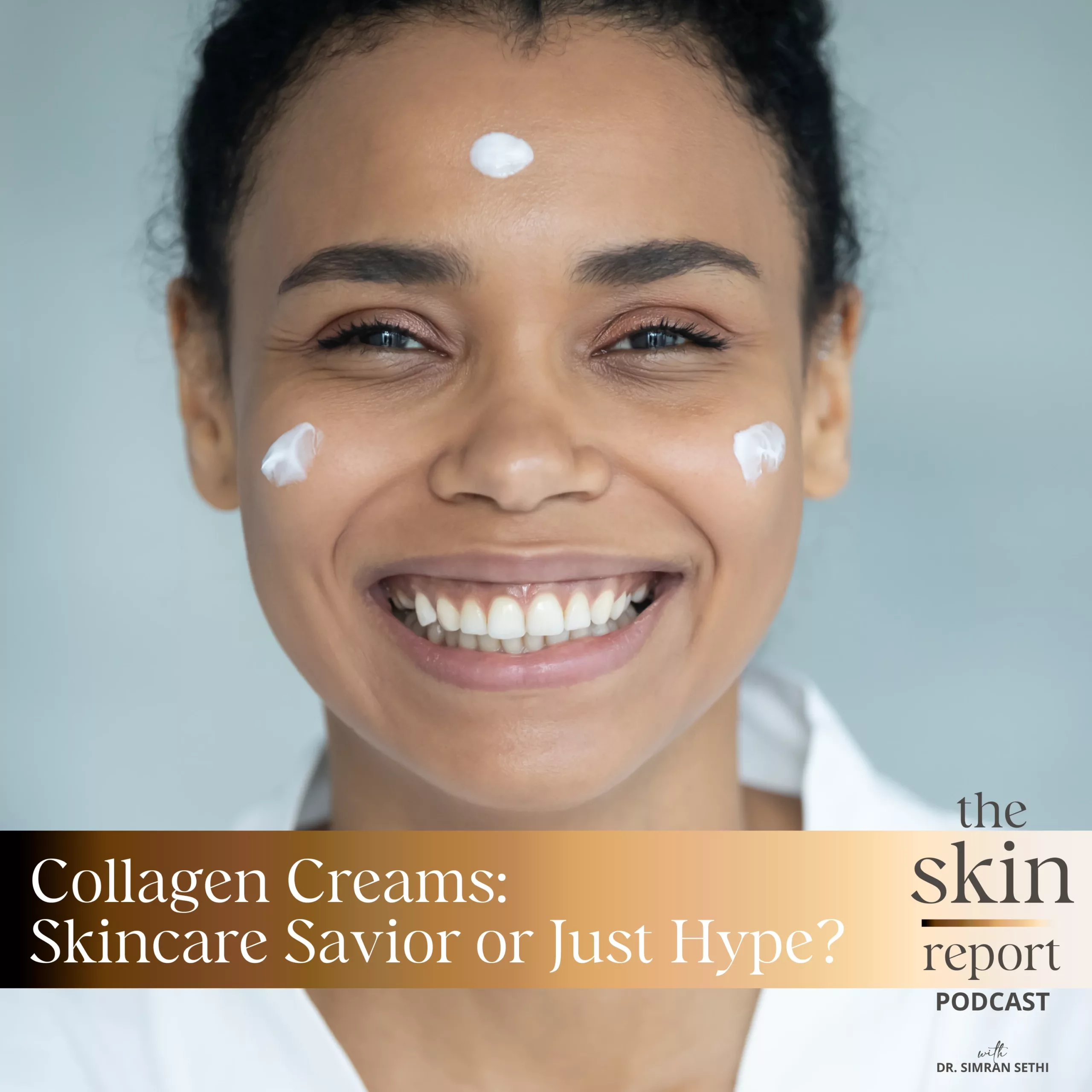Scalp Skincare
Skincare is vital for our faces, but we have skin all over our bodies, even on the top of our heads! Scalp health is essential and can impact the health of our hair growth and appearance. So how often should you wash your hair to ensure its maintenance, and what other healthy habits should you practice to nourish and protect your scalp?
The Skin Report is a podcast created to educate listeners on methods to improve skin health for people of all ethnicities and ages. On this episode, host Dr. Sethi addresses misconceptions and misinformation about scalp health. She reviews proper cleansing routines and shares her thoughts on trends like double cleansing, hair oiling, and more. Listeners will also gain her insights on various common scalp conditions, including dandruff, Malassezia, and build-up!
As the founder of RenewMD Beauty Medical Spas and a woman of color, Dr. Sethi knows the importance of properly caring for your skin. So expand your skincare knowledge by tuning in to this informative episode! Also, follow along on TikTok @SkinByDrSethi for more skincare content!
Follow and DM a question for Dr. Sethi to answer on The Skin Report Podcast:
Renew Beauty Instagram:
https://www.instagram.com/renewmd_beauty/
RenewMD Beauty Medical Spas, California:
https://renewmdwellness.com/
Dr. Sethi on TikTok:
@SkinByDr.Sethi
Skin Cycling Duo Special Offer 20% off Promo Code:
SKINREPORT20
This transcript was exported on May 31, 2023 -view latest version here.
Skincare can sometimes feel overwhelming, whether it’s finding the right products, ingredients, or treatments, there is a lot out there, but not always for people of African, Hispanic, Middle Eastern and Eastern South Asian descent. That’s why I set out to educate myself and others so that we can all feel beautiful in our skin.
Hello and welcome back to The Skin Report. I’m Dr. Simran Sethi, an internal medicine doctor, mom of three, and CEO and founder of ReNewMD Medical Spas and SKIN by Dr. Sethi.
For this episode, we’re talking about skin on our body that we haven’t fully covered before, our scalp. Our scalp health impacts the health of our hair, and today we’ll be addressing some misconceptions and misinformation. So let’s get started.
In our culture, there’s an emphasis on the look and strength of our hair, yet we can’t have healthy hair without a healthy scalp. In fact, it doesn’t just stop there. Our scalp and therefore hair also reflect the health of our body, but more on that later. Scalp health is usually ignored until people develop symptoms like excess scalp dryness, itching, dandruff, or even hair loss. If the scalp is unhealthy for an extended period of time, it will inevitably lead to hair loss as the scalp is what provides nutrition to our hair follicles.
Just like the skin on our face and body, there has to be an optimal balance between cleaning and retaining essential oils for the scalp. We have talked about how harsh cleansers can strip the skin, same goes for what you put on your head. Harsh chemicals in shampoo can result in an overly dry scalp that’ll create more dead skin cells that then trap dirt and debris, clogging follicles and creating cysts. It’s important to keep in mind that the scalp is more resilient than other areas, but in order to maintain healthy skin, moisture and blood flow are needed. So let’s cover proper cleansing routines, the low down on double cleansing, hair oiling and more.
There is a lot of debate around how often you should shampoo your hair. The fact of the matter is that if you shampoo too often, you will lose more hair. The scalp is resilient and doesn’t need to be cleansed twice a day like the face. If you have oily hair, you can wash more regularly, but still, try washing every other day if possible. I bring this up because I also want to talk about the new trend of double washing your hair, which is the process of applying, rinsing and repeating. The theory is that the first wash cleans out the debris or buildup on hair, and the second wash delivers nutrients to hair and scalp.
Double washing runs the risk of over drying your scalp and promoting excess secretion of sebum in response to the lost moisture. This is exactly what happens on the skin on our face, and that is why when people with oily skin wash their face with harsh cleansers, in just a couple of hours their skin is very oily again. Double cleansing should be considered if you use a lot of hair products to remove the products, but perhaps limit this to once a week instead of every time you wash. This will balance the reduction in buildup while restoring needed scalp moisture.
Now, for moisturizing the scalp, what can we do? Rosemary oil, for example, has been used for thousands of years as a remedy for hair growth. However, we don’t have enough studies to show clinical benefit, but there is a few. I did find one study that included hundred subjects and half of them were allocated to a rosemary oil group while the other used minoxidil or Rogaine for six months. Both groups experienced clinically significant hair growth. This trial’s results are encouraging, but we need more of them or ones with larger test groups. Now, we can’t have an episode about scalp help without also talking about dandruff. More on that when we come back.
Dandruff also known as seborrheic dermatitis is a chronic condition most commonly found in infants and adults in their thirties and forties. Dandruff is not caused by lifestyle issues or a dry scalp per se. In fact, the exact cause of dandruff isn’t known. However, we do know that it involves more active sebum or oil production as we’ve seen an enlargement of the scalp sebaceous glands.
This results in a scaly buildup on the scalp and predominance of a fungal species that exists in smaller quantities on the scalp normally, called Malassezia. The main goal of therapy is to clear the visible signs of the disease and reduce associated symptoms such as erythema and pruritus, which is redness and itching. It’s often necessary to undergo repeated treatment or long-term maintenance treatment.So what does this treatment look like? As there’s an abundance of the fungus Malassezia, when people suffer from dandruff, we can treat the dandruff by using an antifungal product. For mild cases I’d suggest using antifungal shampoo such as zinc pyrithione 1% and selenium sulfide 2.5% shampoo, available over the counter. Or ketoconazole 2% and ciclopirox 1%, available by prescription until the symptoms subside, which usually takes about two to four weeks.Now, for more severe cases, an antifungal shampoo and a topical steroid in the form of a shampoo or lotion or spray are used daily for two weeks, followed by just once a week use for the next two to four weeks. As dandruff is a chronic condition, using an antifungal shampoo once a week or a few times a month will help prevent relapse of symptoms.
Now, say you don’t suffer from dandruff, but you do still experience a lot of buildup or hair loss, there are several other steps you can take to ensure a healthy and happy scalp. If you’re still struggling with buildup despite shampooing with the right product, you may want to look into your shower itself and a shower filter. When you shower with hard water, it adds buildup to the scalp and can occur on the hair, making it weaker and less healthy. Soft water, however, helps reduce the buildup of minerals on your hair and scalp. Getting a water filter for your shower may also help reduce skin irritation.
Massaging the scalp is another amazing way to help boost your scalp and hair growth. Theoretically, this makes sense as increased blood flow will deliver more nutrients to hair, and there are some small studies that showed this to be true. However, to see results in terms of hair growth, you have to consistently perform a scalp massage at least 20 minutes a day every day. Part of why scalp massages may be effective is because they remove debris from the scalp in addition to increasing blood flow. While we need more properly conducted studies, we do know that scalp massages can only help, not hurt your scalp and hair health.
Before we wrap up, I want to cover one more thing about your scalp. It is naturally protected from the damaging effect of UV radiation, but with age and hormone changes, the scalp’s ability to support hair growth will reduce. So if you’re bald, it’s good to put sunscreen on your head and to wear a hat so that you can be protected from skin cancer.
Overall, the scalp, just like the skin on the rest of our body, can be a barometer for your health. When people don’t have the right amount of nutrients like fats, proteins, and minerals, the body starts conserving energy to fuel essential organs like the heart and brain by directing energy away from hair, skin, and nails. So, if you go on an extremely calorie restrictive diet, your scalp will not have enough nutrition to support hair growth.
I hope you enjoyed our episode on scalp health. If you’d like more of this content, let us know. We’re a women of color-owned brand and any likes, reviews, ratings and shares truly help to boost the podcast and get in front of others like yourself. Thanks for listening, and until next time, love the skin you’re in and celebrate your beauty.
If you’d like to learn more about science-backed skincare or medical aesthetic treatments, please subscribe to and on notifications for The Skin Report so you always know when a new episode is up. We have a newsletter that you can sign up for on skinbydrsethi.com so that you can stay up to date on all our latest products and more. Additionally, if you have a skincare question or want to make an episode topic recommendation, please message me at theskinreportbydrsethi.com, which is linked in my show of 3notes, and I’ll be sure to answer your question in an episode soon. We’ve received some great questions so far and I will try and answer them at the end of every episode, so keep them coming.
Transcript by Rev.com


